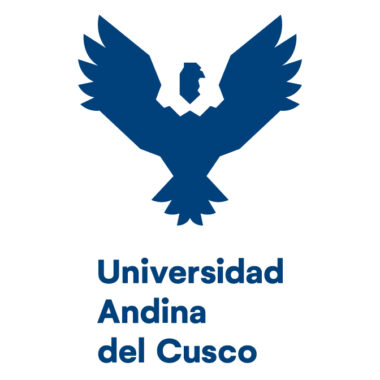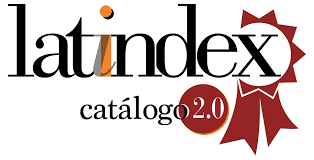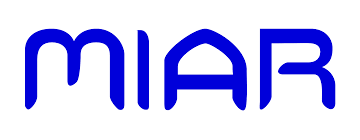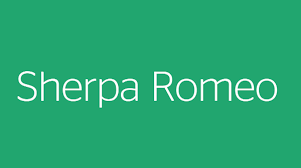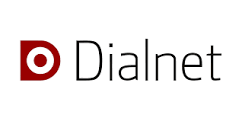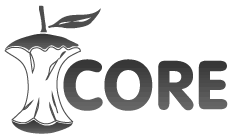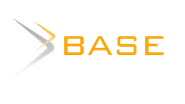Critical reading, epistemic thinking and academic writing. A four-voice approach
DOI:
https://doi.org/10.36881/yachay.v14i2.1136Keywords:
Sentido acuciosoAbstract
This research, as a result of a documentary review with a qualitative approach, aimed to establish a theoretical dialogue between three important processes for intellectual life: critical reading, epistemic thinking and academic writing, taking as references the contributions derived from the review of the classic works of the authors Edgar Morin, Paulo Freire, Hugo Zemelman and Matthew Lipman, as well as the consultation of secondary sources (specialized journals). Content analysis was used to identify underlying elements and the criteria used were the following: common positions, shared tangential approaches, mental activities that operationalize the production of knowledge, as well as the complementarity between theoretical positions. The results indicate that a deep approach to knowledge depends on rigorous interactions that allow one to dive into the underlying, the implicit, specifying ideological, theoretical and conceptual intentions; through which the epistemic operation of thought reaches to establish novel relationships that, organized through the conventions of academic writing, give rise to the communicative function as well as to the structured, logical and coherent presentation of scientific discourse; this supposes the transcendence of the transformation of accumulated knowledge into useful and novel knowledge that responds to the parameters of social relevance. It is concluded that accounting for reality and interacting with the underlying units of meaning requires a critical spirit, which, assisted by the epistemic process of thought and writing, seeks to break outdated explanatory limits and give way to renewed knowledge.
Downloads
References
Altamirano, S. (2021). Perfil de alfabetización mediática de estudiantes y docentes de educación superior. CPU-e. Revista de Investigación Educativa, 32, 88-110. https://doi.org/10.25009/cpue.v0i32.2735
Ballesteros, V., & Gallego, A. (2022). De la alfabetización científica a la comprensión pública de la ciencia. Trilogía Ciencia-Tecnología-Sociedad, 14(26). https://doi.org/10.22430/21457778.1855
Beltrán, P. (2023). Retos para la enseñanza de la lectura en el contexto rural de Colombia. Ciencia Latina Revista Científica Multidisciplinar, 7(5), 4893-4909. https://doi.org/10.37811/cl_rcm.v7i5.8084
Bermejo, J. (2021). El método dialógico-crítico en educomunicación para fomentar el pensamiento narrativo. Comunicar, 68(29), 111-121. https://doi.org/10.3916/C67-2021-09
Berrío, M., Chávez, D., Cangalaya, L. y Arias, D. (2024). Pensamiento crítico y comprensión lectora en un texto de Edgar Morin. ACADEMO (Asunción), 11(1), 29-37. https://doi.org/10.30545/academo.2024.ene-abr.4
Cabrera, D. (2022). Leer el mundo, experiencia y praxis. Logos, 50 (38), 75-92. https://doi.org/10.26457/lrf.v138i138.3171
Cassany, D. (2021). Lectura crítica en tiempos de desinformación. Revista Electrónica Leer, Escribir y Descubrir, 1(9). https://digitalcommons.fiu.edu/led/vol1/iss9/3
Correa, C. (2024). De la formación teórica al pensamiento epistémico en los posgrados en Educación en América Latina. Revista UNIMAR, 42(1), 87-102. https://doi.org/10.31948/ru.v42i1.3850
Curiel, R., Marenco, E. y Alvarado, M. (2021). Filosofía para niños y niñas: una herramienta para fortalecer la lectura en el aula y el pensamiento crítico. Revista de Filosofía, Número Especial, 21-31. https://doi.org/10.5281/zenodo.5140617
Fonseca, C., Quinto, S. y Urrea, G. (2023). Las posibilidades para propiciar el pensamiento epistémico desde el paradigma socio-crítico en el investigador doctoral. Revista Dialogus, 11, 155-163. https://revistas.umecit.edu.pa/index.php/dialogus/article/view/1124
Freire, P. (2002a). Pedagogía del oprimido. Siglo XXI Editores.
Freire, P. (2002b). Educación y cambio. Editores Buenos Aires. https://www.elmayorportaldegerencia.com/Libros/Coaching/%5BPD%5D%20Libros%20-%Educacion%20y%20cambio.pdf
Freire, P. y Faundez, A. (2013). Por una pedagogía de la pregunta: crítica a una educación basada en respuestas a preguntas inexistentes. Siglo XXI Editores.
García, N. (2022). Paulo Freire: Escuela, alfabetización y lectura crítica del mundo. Lección inaugural. Pedagogía y Saberes, (56). https://doi.org/10.17227/pys.num56-15811
García, N. y Beltrán, C. (2018). Aprender a leer y a escribir ¿en el tiempo correcto? Disquisiciones a propósito de la actual política educativa en el área de Lenguaje. Revista Educación y Ciudad, (34), 89-100. https://doi.org/10.36737/01230425.v0.n34.2018.1878
González, J. (2018). El proceso educativo desde el pensamiento complejo. Revista Con-Ciencia, 6(1), 53-62. http://www.scielo.org.bo/scielo.php?script=sci_arttext&pid=S2310-02652018000100006
Harada, E. (2012). La filosofía de Matthew Lipman y la educación. Perspectivas desde México. Universidad Autónoma de México.
Lipman, M. (1998). Pensamiento y educación. Ediciones La Torre.
Lipman, M. (2016). Escribir: cómo y porque. Ediciones de la Torre.
López, S. (2025). Aportes de la escuela de Frankfurt y Edgar Morin para fomentar el pensar dialéctico y complejo en la educación. Sophia, Colección de Filosofía de la Educación, 38, 271-294. https://doi.org/10.17163/soph.n38.2025.08
Morales, J. (2021a). Lectura crítica e investigación. Aportaciones de Hugo Zemelman al Aprendizaje en la Universidad. Revista Latinoamericana de Difusión Científica, 4(6), 94-121. https://doi.org/10.38186/difcie.46.07
Morales, J. (2021b). Lectura desde la pedagogía crítica: una propuesta para la intervención educativa significativa. Revista Cubana de Educación Superior, 40(2), 1-15. http://scielo.sld.cu/scielo.php?pid=S0257-43142021000200006&script=sci_abstract
Morales, J. (2023). Lectura e investigación en Matthew Lipman. Prácticas al servicio del aprendizaje en la educación del siglo XXI. Yachay Revista Científico Cultural, 12(1), 58-64. https://revistas.uandina.edu.pe/index.php/Yachay/article/view/672/291
Morales, J. (2024). Los procesos de enseñanza y aprendizaje en tiempos de complejidad. Sugerencias desde la perspectiva de Matthew Lipman. Revista Investigación y Postgrado. 39(1), 9-27. https://doi.org/10.56219/investigacinypostgrado.v39i1.2697
Morin, E. (1999). Los siete saberes necesarios para la educación del futuro. UNESCO.
Morin, E. (2009). Introducción al pensamiento complejo. Gedisa.
Oliveros, S., Valenzuela, C y Núñez, C. (2023). Los siete saberes necesarios para la educación del futuro”, de Edgar Morin: Una mirada desde la alfabetización en información. Revista Andina de Educación, 6(2), 1-11. https://doi.org/10.32719/26312816.2022.6.2.8
Puiggrós, A. (2024). Lecturas de Freire. Perfiles Educativos, XLIII, 11-21. https://doi.org/10.22201/iisue.24486167e.2021.Especial.61017
Retamozo, M. (2015). La epistemología crítica de Hugo Zemelman: política y metodología (o una metodología política). Estudios Políticos, (9), 35-61. https://www.revistas.unam.mx/index.php/rep/article/view/52704
Ruíz, L. (2024). Edgar Morin y los siete saberes necesarios a la educación del futuro. Revista Holón, 2(5), 3-15. https://revistas.up.ac.pa/index.php/holon/article/view/4917/3923
Zemelman, H. (2005). Voluntad de conocer. Anthropos.
Zemelman, H. (2012). Pensar y poder. Razonar y gramática del pensar histórico. Siglo XXI editores.
Zemelman, H. (2015). Pensamiento y construcción de conocimiento histórico una exigencia para el hacer futuro. Revista El Ágora, 15(2), 343-362. https://nbn-resolving.org/urn:nbn:de:0168-ssoar-462691
Zemelman, H. (2021). Pensar Teórico y Pensar Epistémico: los retos de las Ciencias Sociales latinoamericanas. Espacio Abierto, 30(3), 234-244. https://produccioncientificaluz.org/index.php/espacio/article/view/36823/39761
Downloads
Published
How to Cite
Issue
Section
License
Copyright (c) 2025 Jesús Alfredo Morales Carrero

This work is licensed under a Creative Commons Attribution 4.0 International License.
You are free to:
- Share — copy and redistribute the material in any medium or format
- Adapt — remix, transform, and build upon the material
- The licensor cannot revoke these freedoms as long as you follow the license terms.
Under the following terms:
-
Attribution — You must give appropriate credit, provide a link to the license, and indicate if changes were made. You may do so in any reasonable manner, but not in any way that suggests the licensor endorses you or your use.

